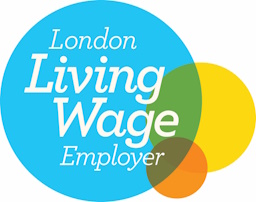
It came as no surprise on Wednesday that Chancellor Jeremy Hunt used his first budget, dubbed as his “back to work budget”, to focus on encouraging those who have left employment over recent months and years to return to the workforce, with help on childcare costs and pension saving incentives for higher earners.
Chamber CEO, Sara Williams reported in her blog a few weeks ago that we have around 30,000 vacancies just in Stoke-on-Trent and Staffordshire.
This budget was set against the fact that we have narrowly avoided a recession and a forecast that the economy would grow by 1.8 per cent in 2024 and 2.5 per cent in 2025, and with welcome news that inflation is expected to plummet to 2.9% by the end of this year.
However, many businesses will still struggle to pay their energy bills from April, and they cannot invest when they are fighting to survive and there was little in this budget that will provide comfort to these firms.
The Office for Budget Responsibility (OBR) is rightly cautious about the impact of the budget on boosting the workforce. On their estimate of the increase in labour supply because of the policies announced in this Budget, they are uncertain stating that “a plausible range could be as high as 240,000 or as low as 55,000 based on alternative plausible assumptions.”
This does not exactly inspire confidence!
The Government also failed to reform business rates which Chambers of Commerce have repeatedly called for. If the UK’s innovative growth industries are to remain competitive on the world stage, then Government must shift the dial further on investment, both within the UK and from overseas.
The most recent British Chambers of Commerce (BCC) survey on investment found that only a fifth of firms were increasing investment and a similar number were reducing it. This budget looks unlikely to change that dynamic as we cannot expect firms to invest when they are fighting to survive.
However, some welcome news from Mr Hunt’s announcement that Stoke-on-Trent has been chosen as one of 20 areas to benefit from a new £400 million Levelling Up partnership. The government has yet to reveal details and it is not known what the projects the money will support. Mr Hunt said the scheme was part of the government’s drive to give ‘more control for local communities over their economic destiny’ which would ‘level up wealth generation and opportunity everywhere’.
Chris Alderman, Tax Director at RSM Stoke-on-Trent who chairs the Chambers’ Money Matters Forum, commented that the Chancellor promised a ‘Budget for Growth,’ but many taxpayers would be forgiven for feeling somewhat underwhelmed by the measures announced from a tax perspective, saying that: “Only time will tell whether the changes announced do anything to address the UK’s low productivity and inspire the ‘economically inactive’ into work.”
You can read Chris’s full summary of the budget in our Daily Focus here: Financial analysis of Chancellor’s budget – Daily Focus (daily-focus.co.uk)
You can also view the British Chambers of Commerce full review of the budget which looks at key issues of skills shortages, business rates, energy support and trade here: BCC IN-DEPTH BUDGET RESPONSE: Measures unlikely to shift dial on business investment (britishchambers.org.uk)
Full details of the Budget including the Chancellor’s full statement can be found here: Spring Budget 2023 – GOV.UK (www.gov.uk)
If you want to talk to us about any business issues, including funding, you can call our switchboard on 01782 202222 or call the Stoke and Staffs Growth Hub Helpline on 0300 111 8002 or email: info@staffordshirechambers.co.uk










You must be logged in to post a comment.